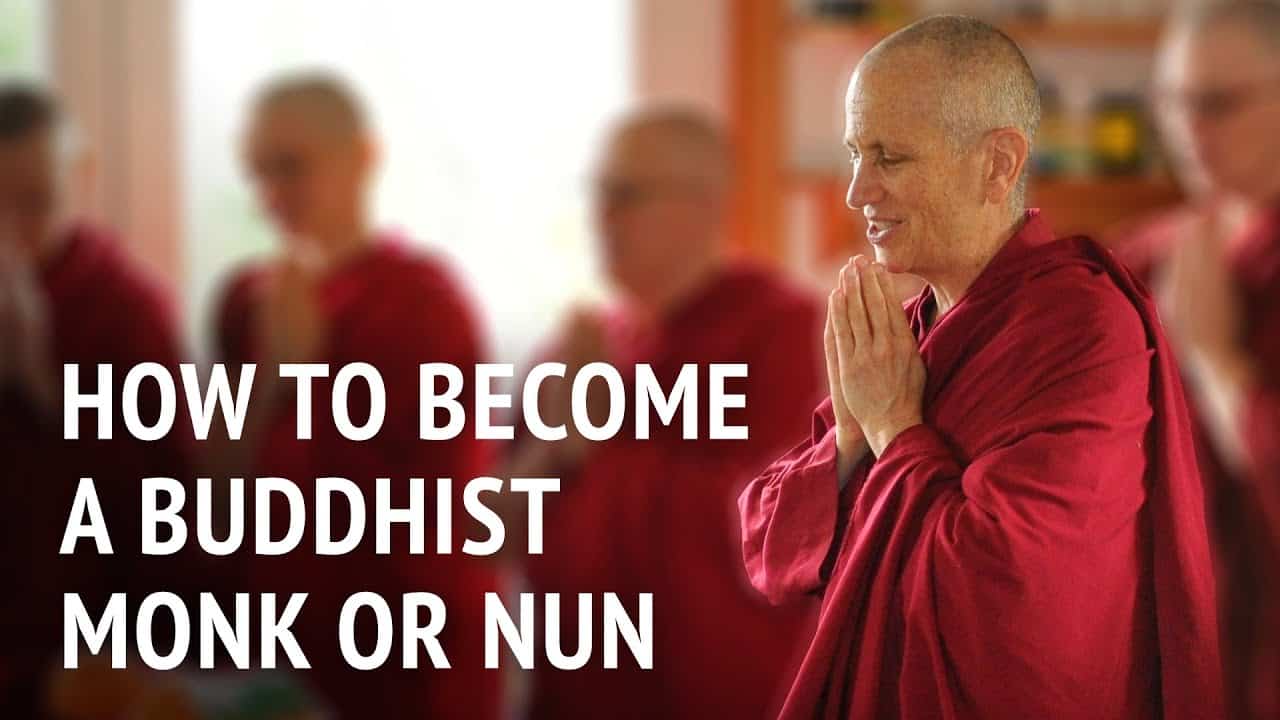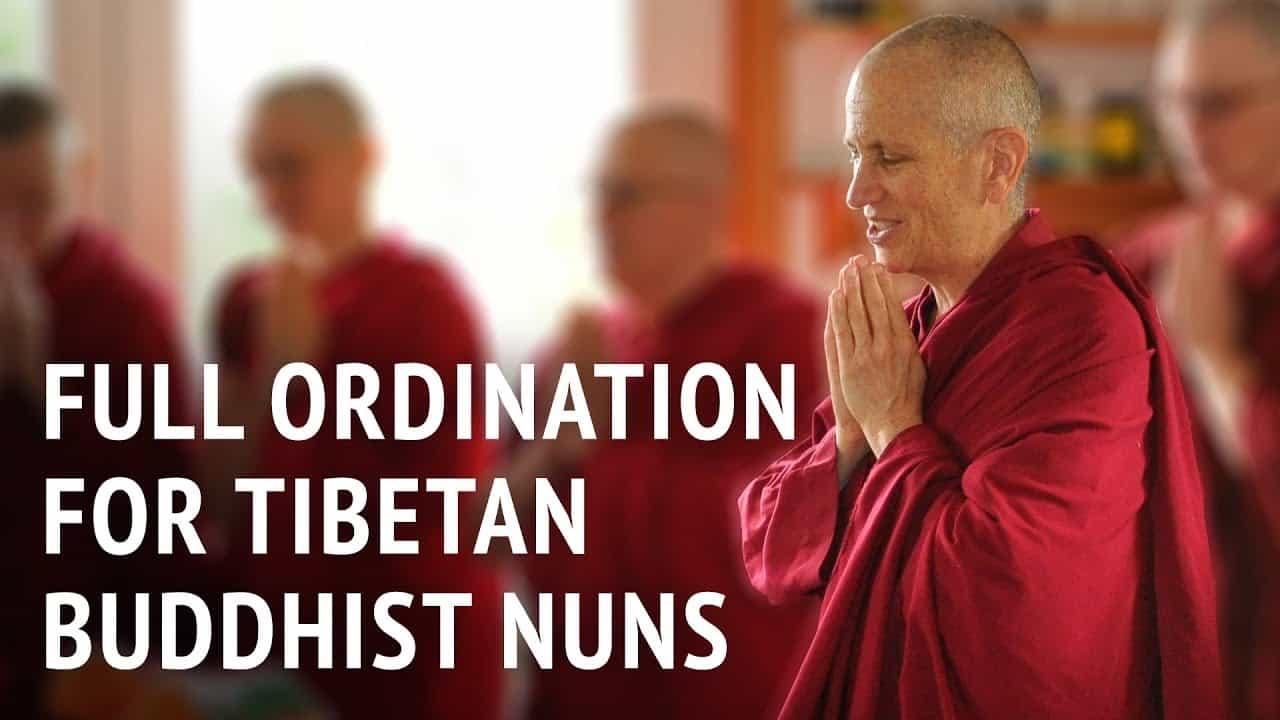The need for monasteries in the West
In these interviews, recorded by a team from studybuddhism.com, Venerable Thubten Chodron answers questions about her life and what it means to be a Buddhist in the 21st century.
Historically, monasteries have been the repository of the Dharma, both in terms of people and in terms of Dharma scriptures and statues, and as a space where people could come and practice.
So the role of the monasteries and of monastics is to embody the Dharma, study it, practice it, teach it, make it so that the Dharma can exist in future generations. I think that’s something that is quite important, that one individual alone can’t do.
For example if I were a lay teacher, if people had difficulties and they needed counseling, or they were distressed or they needed some special teaching, if they came to my home and rang the doorbell and said, “Can you help me?” Maybe I would be holding a baby, and there’d be a crying toddler and my husband would be around, and I’d have to say, “Sorry!”
Whereas in a monastery, there’s a physical place where people in the world know that they can go when they need counseling, when they need teachings, when they want to go on retreat, when they need that inspiration.
And by having that physical place then even people who don’t come here benefit. We get so many emails from people who have never been here, who say, “Thank you for existing. It’s very inspiring for me to know that there are people who are consciously cultivating love and compassion and wisdom in today’s society.”
People are so grateful just to know that there’s a group of people in a place that is doing that. That gives them hope and inspiration for the world.
Also, I think monasteries act as the conscience of society in many ways. Because here’s a group of people. We live a simple lifestyle. We aren’t doing business, selling things, buying things. Our economy is an economy of generosity. We give freely, people make donations to us, they give freely.
So it asks society, is this whole thing of trying to make a buck really meaningful? Here are these monastics who wear the same clothes every day, and they don’t have sex, and they’re not watching Netflix all the time, how can they be happy?! And yet we look at them, and they’re happy people.
So it makes general society think what really is happiness, and what really is the cause of happiness? Trying to find happiness by climbing up the corporate ladder, by getting more possessions, by going here and doing this and that and having one exotic thing after another, and a gazillion boyfriends or girlfriends, but here are people who don’t have that and they’re happy. How is that?
So it makes us question. Just by the existence of monastics in a monastery, it poses that question about the need for material goods, the need for everything that modern life has become.
Also monasteries, at least many of them, I can’t speak for all of them, try and be places that are kind to the environment.
People come here and they say, “I thought I recycled a lot, but I look at what you people do and you hardly throw away anything!” And they come out really feeling like, wow, there’s more I can do in terms of recycling and reusing.
We try and not drive so much. Instead of just, okay, I want this at the store, go out and drive, or I feel like going here or there, go out and drive, we try and put a lot of errands together, and then people go out when it’s necessary.
So it poses that to society also, about how we can be kinder to the environment, what can we really do in our lifestyle?
Venerable Thubten Chodron
Venerable Chodron emphasizes the practical application of Buddha’s teachings in our daily lives and is especially skilled at explaining them in ways easily understood and practiced by Westerners. She is well known for her warm, humorous, and lucid teachings. She was ordained as a Buddhist nun in 1977 by Kyabje Ling Rinpoche in Dharamsala, India, and in 1986 she received bhikshuni (full) ordination in Taiwan. Read her full bio.


